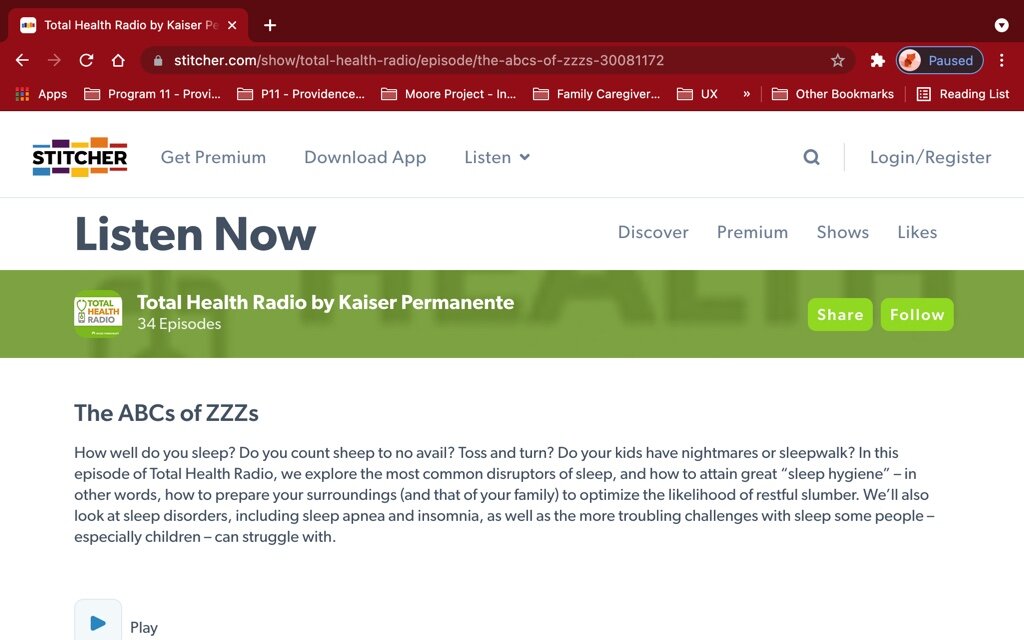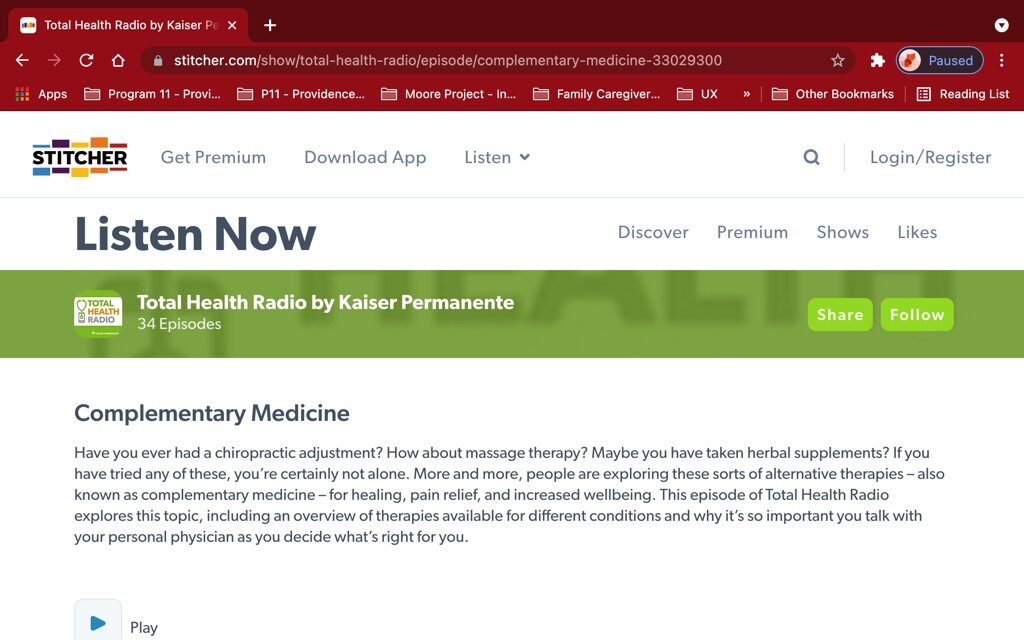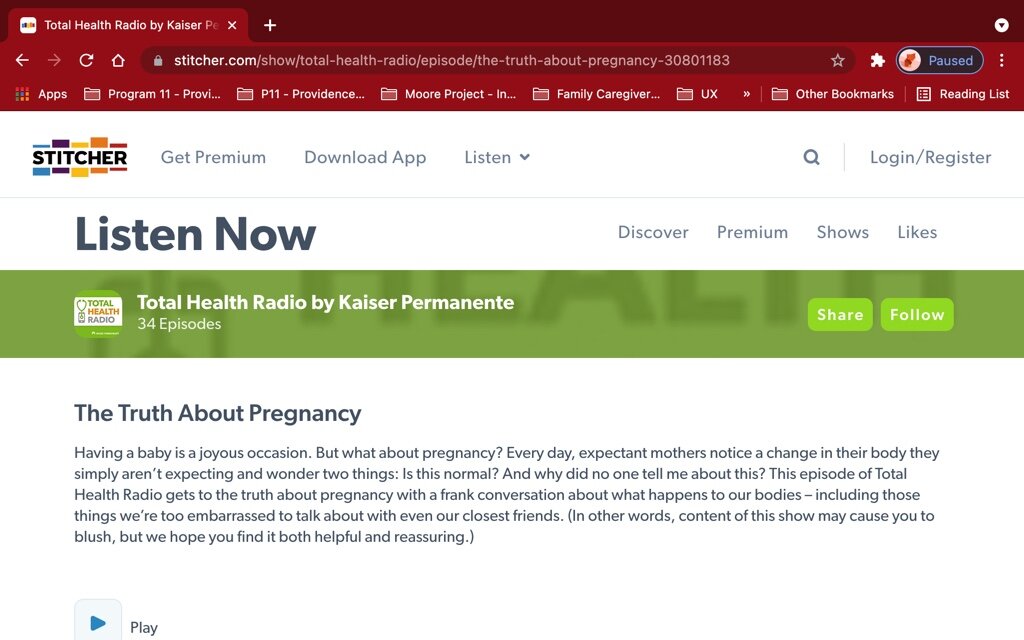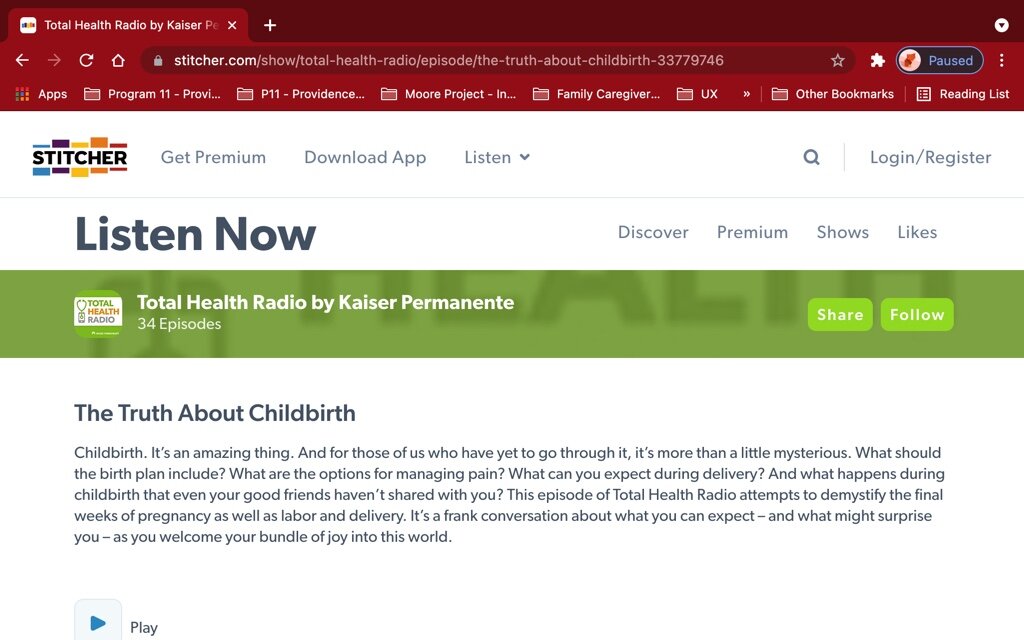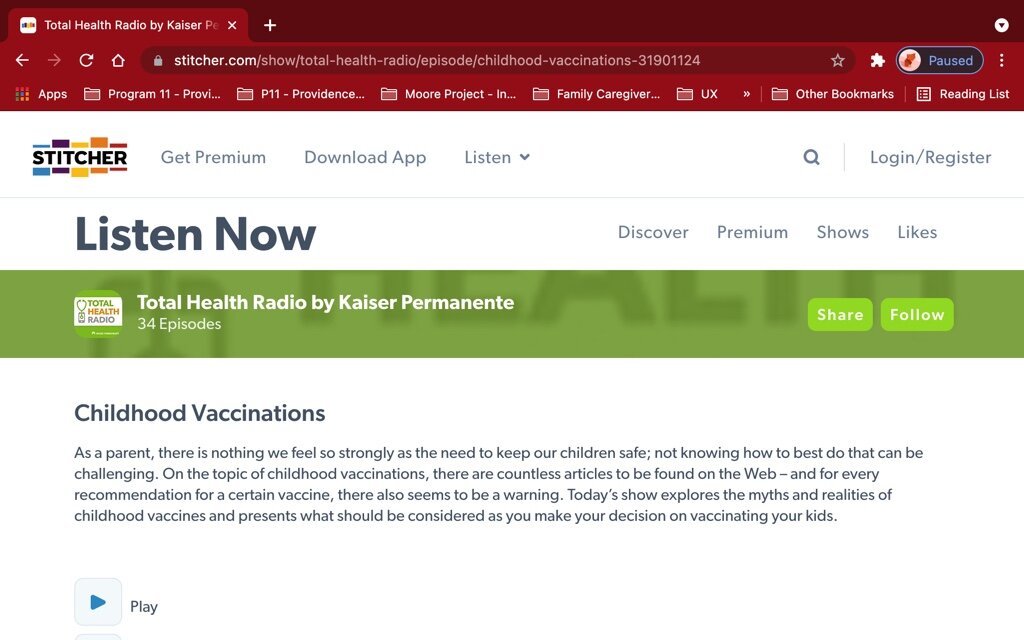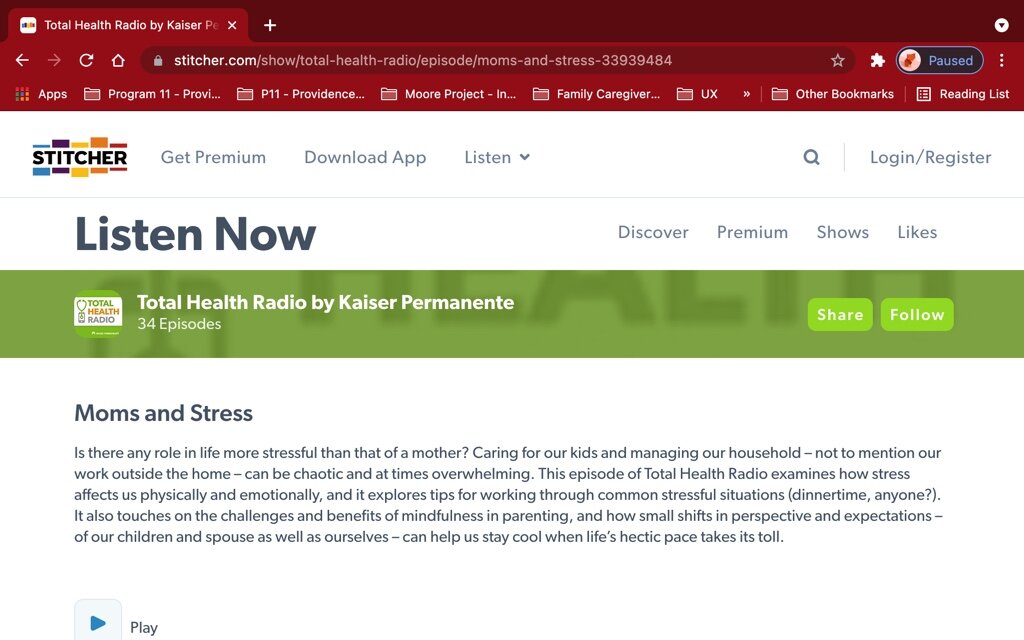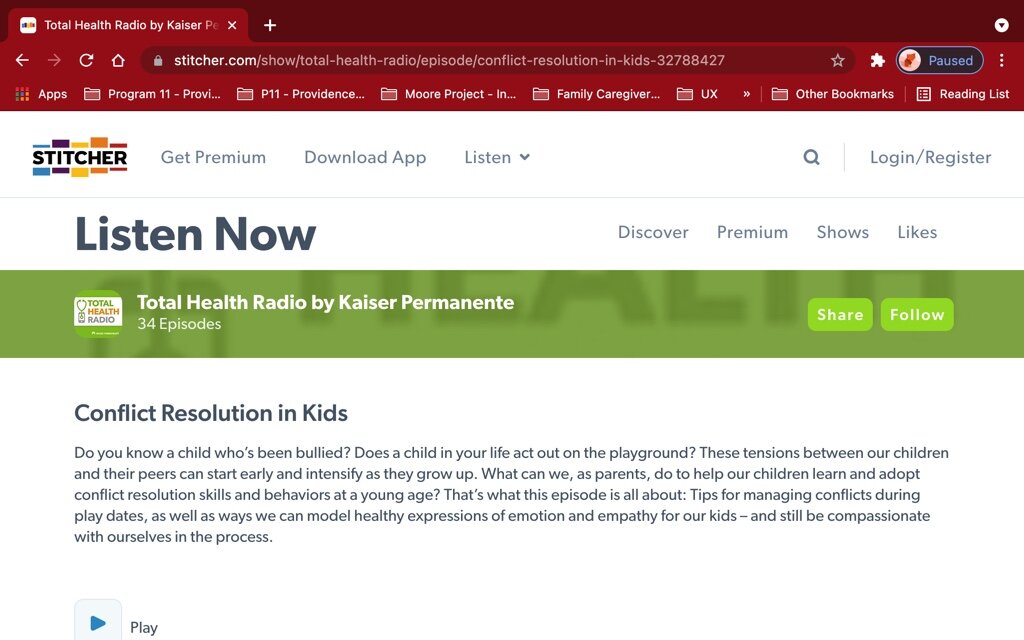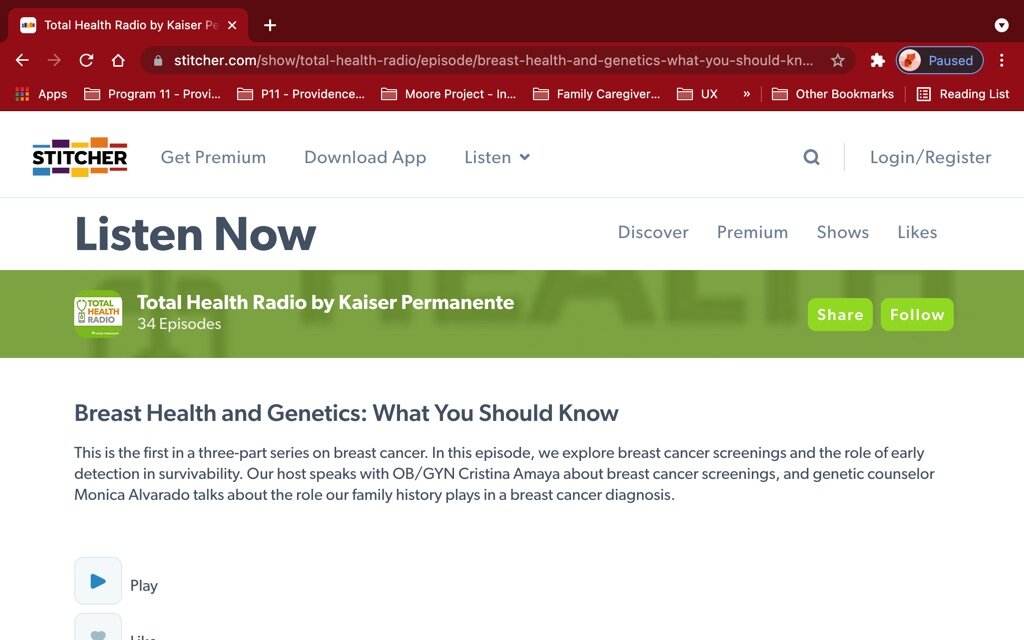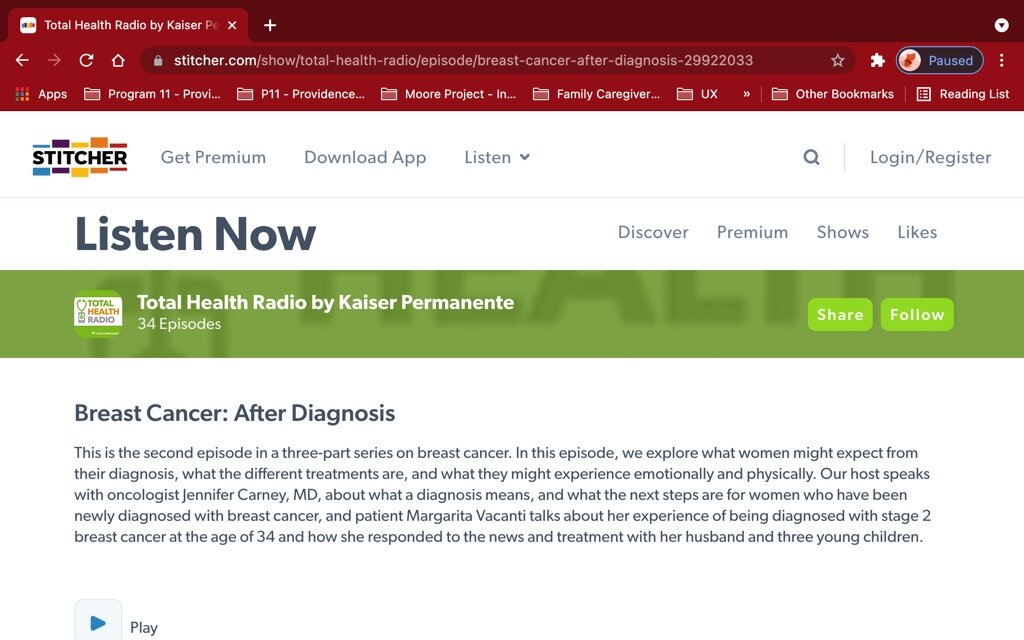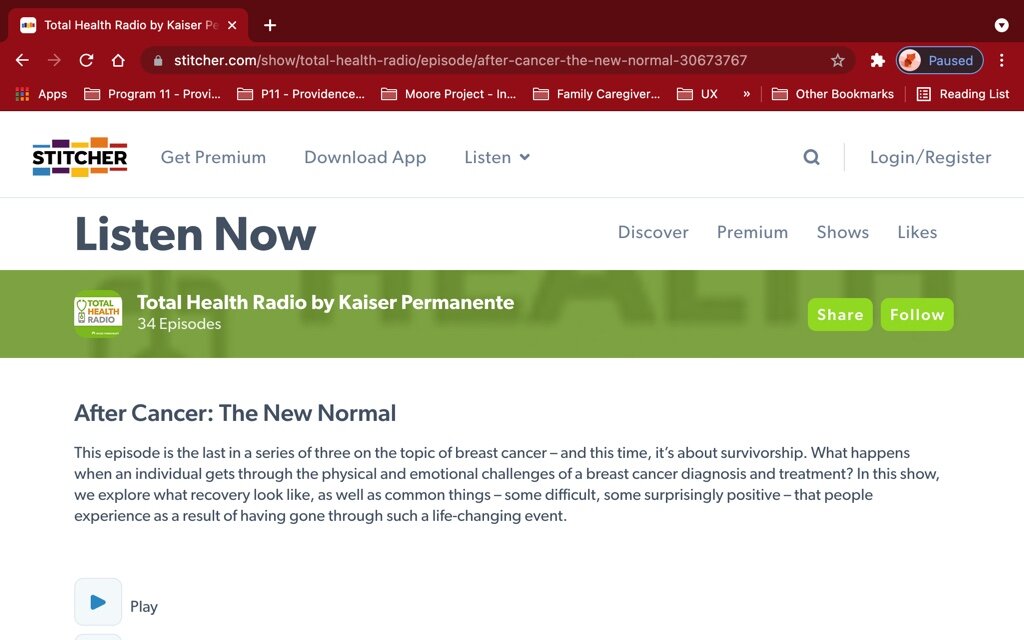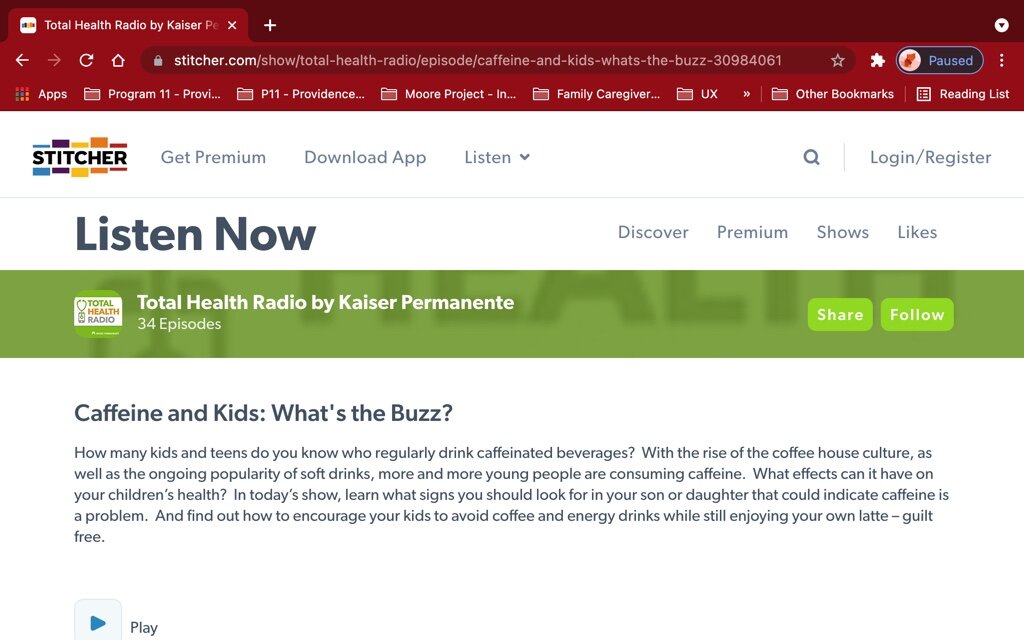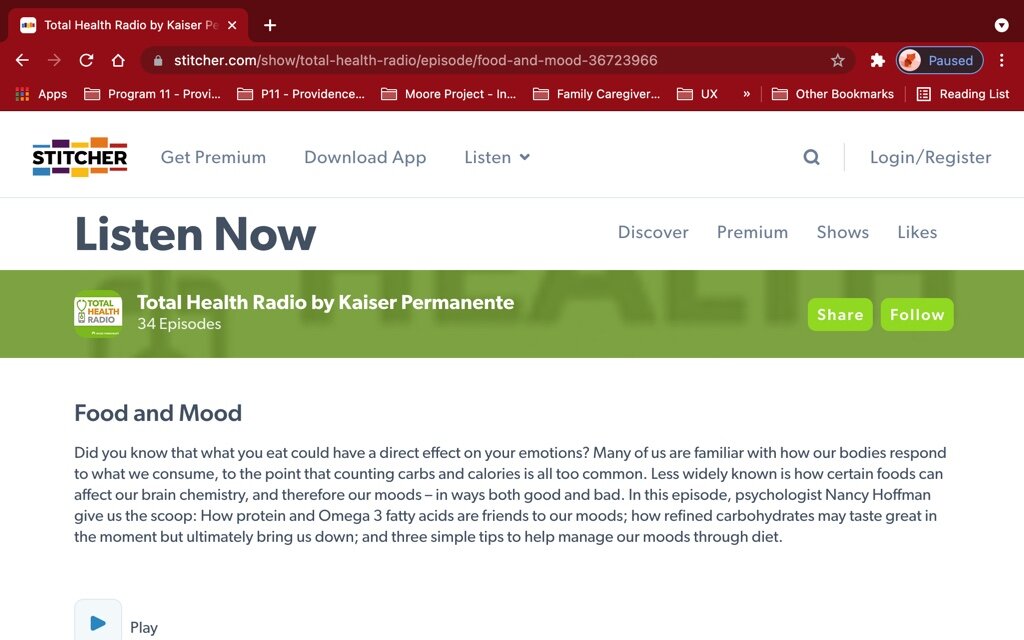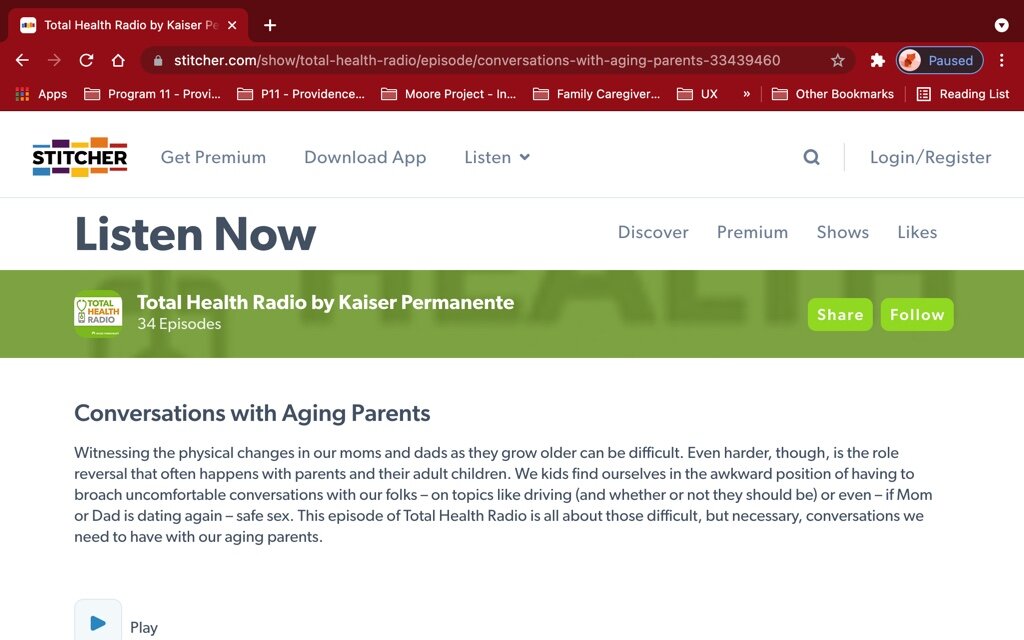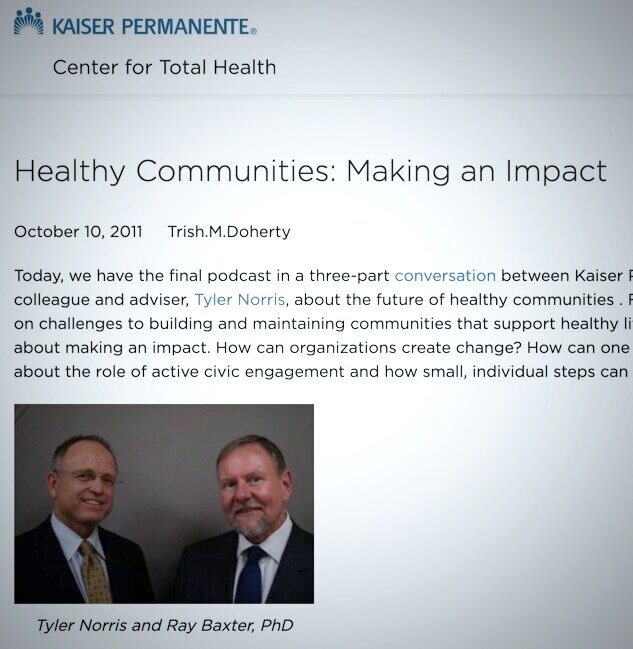
Podcasts
Background
Kaiser Permanente wanted to reach a coveted demographic — wives and mothers, known to be the health care decision makers in families and households. They decided to do that through the fast-growing podcast space.
One of the challenges we faced was producing the podcasts in such a way that it was informational and educational -- not as a sales or marketing device. We knew we didn't want it to be promotional, but we did want it to accurately represent KP as a credible source of information on the topics of most interest to our audience.
The way we handled that was by making our audience's needs the central objective of the show rather than the organization's more traditional approach of telling "our own" story. This meant focusing less on medical issues and primarily on health & lifestyle topics. We chose a KP OB/GYN to host, and we invited KP clinicians onto the show as expert guests.
We never promoted KP. But the exchange between the KP physicians demonstrated the caliber of KP doctors. In that intimate audio format, listeners heard the warmth, intelligence, and humanity in the voices of the featured doctors. It did more for KP's brand than an explicit promo ever would.
While we initially worked with a vendor, we took production in-house shortly after launch, reducing spending on outside agencies by more than $250,000.
My role
I served as producer and project lead on Total Health Radio — researching and outlining show topics, supervising show prep, editing of junior staff, managing stakeholder review and approvals, and crafting website copy — plus a few fun episode titles.
We published 30 episodes on iTunes, Stitcher and SoundCloud, on everything from mindfulness to healthy sex, diets to good sleep. Episodes were widely repurposed both internally and externally, and our work earned two industry awards.
Screenshots: A sampling of THR episode descriptions
featured on the official website and hosting platforms and repurposed for social media and promotion
Conversation as a content curation device
Background: As part of the opening of the Center for Total Health, KP partnered with StoryCorps® to capture conversations among thought leaders that we could later produce into compelling audio vignettes. The audience for this was community health leaders and influencers.
My role: I was one of two project leads in setting up the arrangement with StoryCorps, as well as the producer/editor.
Listen to the episode below.
Background: Kaiser Permanente’s heritage team had the opportunity to interview the nation’s oldest park ranger — and national treasure — Betty Reid Soskin. A force of nature and a born storyteller, Soskin gifted us with countless anecdotes and sound bites. It was an embarrassment of riches, and as soon as the interview ended, we knew our challenge would be in the editing.
My role: I partnered with KP’s historian/archivist on this project, providing feedback on the planned questions and contributing follow-ups during the interview recording session. I served as editor of the audio and led aspects of postproduction to ensure a more conversational tone to the piece as a whole.


